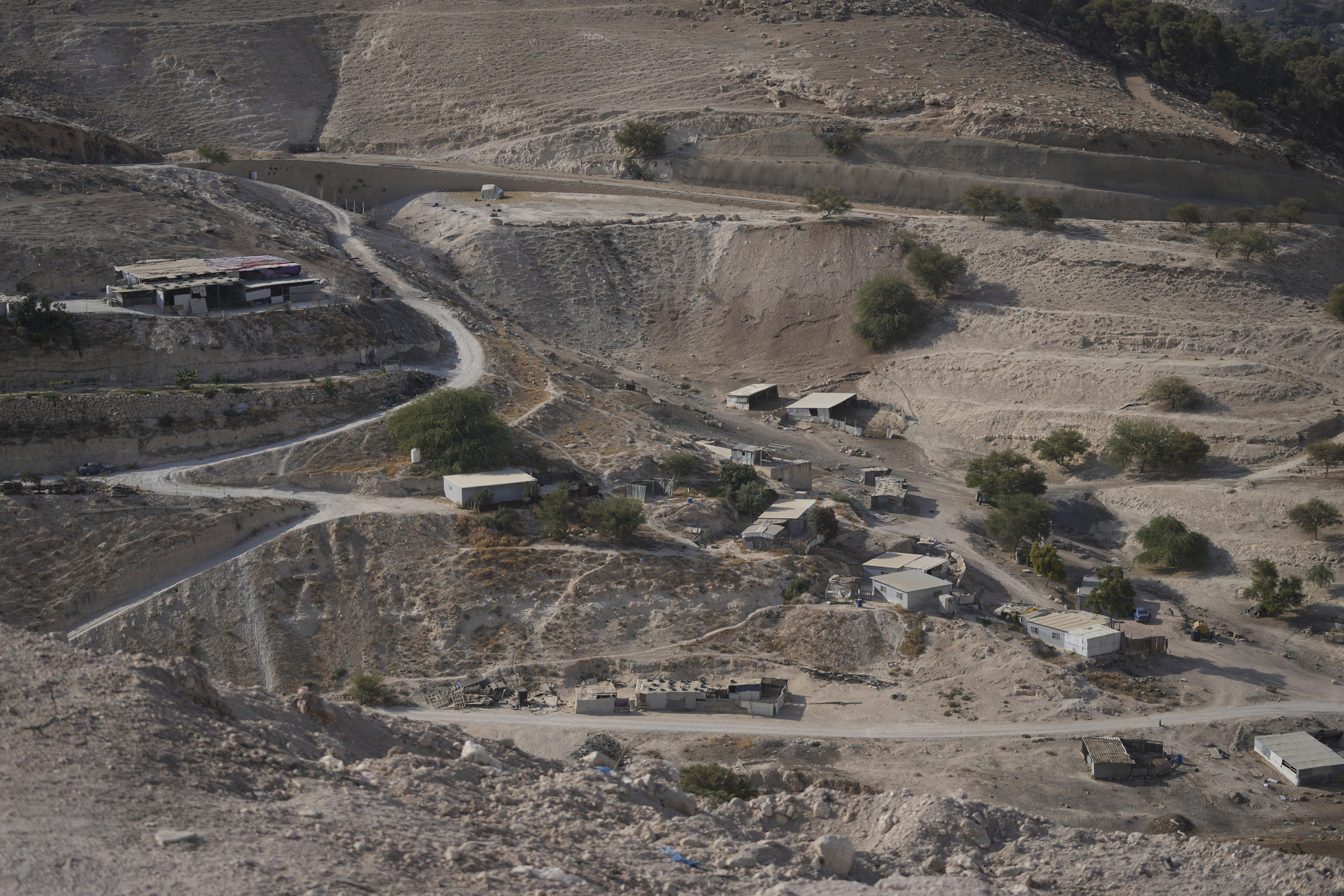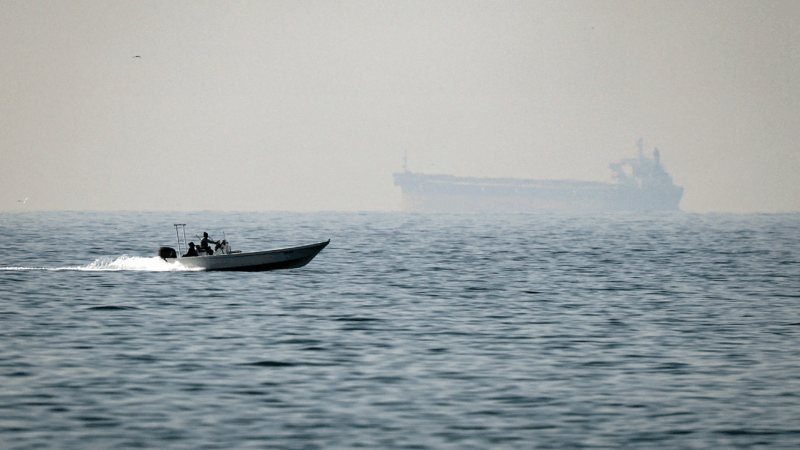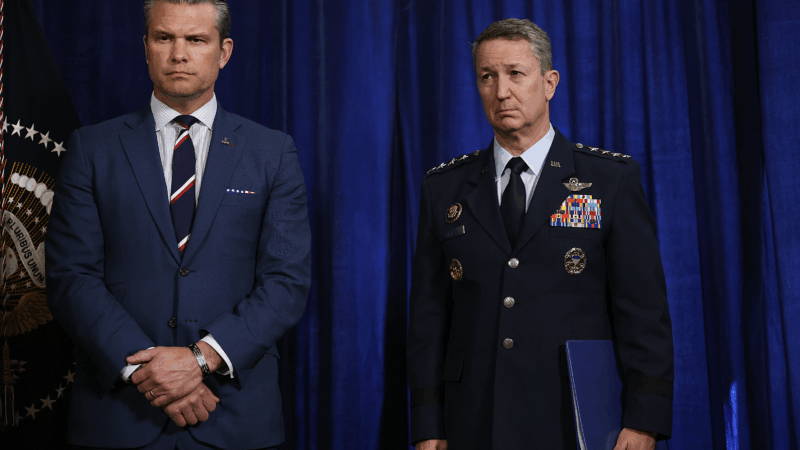Israel has approved a settlement project that could divide the West Bank
TEL AVIV, Israel — Israel gave final approval Wednesday for a controversial settlement project in the occupied West Bank that would effectively cut the territory in two, and that Palestinians and rights groups say could destroy hopes for a future Palestinian state.
Settlement development in E1, an open tract of land east of Jerusalem, has been under consideration for more than two decades, but was frozen due to U.S. pressure during previous administrations. The international community overwhelmingly considers Israeli settlement construction in the West Bank to be illegal and an obstacle to peace.

Far-right Finance Minister Bezalel Smotrich, a former settler leader, cast the approval as a rebuke to Western countries that announced their plans to recognize a Palestinian state in recent weeks.
“The Palestinian state is being erased from the table not with slogans but with actions,” he said on Wednesday. “Every settlement, every neighborhood, every housing unit is another nail in the coffin of this dangerous idea.”
Israeli Prime Minister Benjamin Netanyahu rejects the idea of a Palestinian state alongside Israel and has vowed to maintain open-ended control over the occupied West Bank, annexed east Jerusalem, and the war-ravaged Gaza Strip — territories Israel seized in the 1967 war that the Palestinians want for their state.
Israel’s expansion of settlements is part of an increasingly dire reality for Palestinians in the occupied West Bank as the world’s attention focuses on the war in Gaza. There have been marked increases in attacks by settlers on Palestinians, evictions from Palestinian towns, Israeli military operations, and checkpoints that choke freedom of movement, as well as several Palestinian attacks on Israelis.

More than 700,000 Israelis settlers now live in the West Bank and east Jerusalem.
The location of E1 is significant because it is one of the last geographical links between the major West Bank cities of Ramallah, in the north, and Bethlehem, in the south.
The two cities are 22 kilometers (14 miles) apart, but Palestinians traveling between them must take a wide detour and pass through multiple Israeli checkpoints, spending hours on the journey. The hope was that, in an eventual Palestinian state, the region would serve as a direct link between the cities.
“The settlement in E1 has no purpose other than to sabotage a political solution,” said Peace Now, an organization that tracks settlement expansion in the West Bank. “While the consensus among our friends in the world is to strive for peace and a two-state solution, a government that long ago lost the people’s trust is undermining the national interest, and we are all paying the price.”
Asked about E1 in an interview with The Associated Press, U.S. Ambassador to Israel Mike Huckabee said talk of a two-state solution was not a “high priority” for the Trump administration and that there were too many unanswered questions about what a Palestinian state would look like. The State Department did not immediately respond to requests for further comment.
If the process moves quickly, infrastructure work in E1 could begin in the next few months and construction of homes could start in around a year. The plan includes around 3,500 apartments that would abut the existing settlement of Maale Adumim. Smotrich also hailed the approval, during the same meeting, of 350 homes for the settlement of Ashael near Hebron.
Israel could, in theory, remove the settlement at some future date, as it did with its ones in Gaza in 2005, but that possibility appears extremely remote at present given strong support for the settlements among Israel’s government and even some opposition parties.
Israel’s government is dominated by religious and ultranationalist politicians, like Smotrich, with close ties to the settlement movement. The finance minister has been granted Cabinet-level authority over settlement policies and vowed to double the settler population in the West Bank.
Video of Clinton depositions in Epstein investigation released by House Republicans
Over hours of testimony, the Clintons both denied knowledge of Epstein's crimes prior to his pleading guilty in 2008 to state charges in Florida for soliciting prostitution from an underage girl.
Some Middle East flights resume, but thousands of travelers are still stranded by war
Limited flights out of the Middle East resumed on Monday. But hundreds of thousands of travelers are still stranded in the region after attacks on Iran by the U.S. and Israel.
‘Hamnet’ star Jessie Buckley looks for the ‘shadowy bits’ of her characters
Buckley has been nominated for a best actress Oscar for her portrayal of William Shakespeare's wife in Hamnet. The film "brought me into this next chapter of my life as a mother," Buckley says.
How, who, and why: NPR flips its famous letters to defend the right to be curious
NPR is standing up for the public's right to ask hard questions in a national campaign dubbed "For your right to be curious." At NPR's headquarters, on billboards in New York City, Chicago, and Washington, D.C., and across social media, NPR's three iconic letters transform into "how," "who," and "why" — a bold declaration of its commitment to fight for Americans' right to ask questions both big and small.
Oil prices surge, but no panic yet, as Iran war continues
Global oil prices are in the high $70s as traffic through Strait of Hormuz comes to a halt. Some analysts have warned they could top $100 a barrel if the stoppage is prolonged.
Hegseth: ‘We didn’t start this war but under President Trump we’re finishing it’
The remarks are the first to reporters since the U.S.-Israeli military operations against Iran began Saturday despite weeks of talks designed to stave off a conflict.








